Struggling with thinning edges? You’re not alone. Hairline issues often stem from tight hairstyles, excessive heat, or harsh products, leaving edges fragile and prone to breakage. But here’s the good news: you don’t have to sacrifice style for recovery.
Lightweight braids, like thin or medium styles, offer a perfect balance. They provide gentle coverage and let your edges heal without adding stress. A hairstylist once shared how her clients switched to lightweight braids and noticed healthier hairlines within months.
Remember, it’s not about giving up; it’s about adapting. With the right care and styles, you can protect your edges while staying effortlessly stylish.
What Causes Thinning Edges?
Thinning edges can be a challenge, especially if you love halo braids. Understanding the cause is key to restoring healthy, full edges. Often, it’s linked to poor hairstyling habits or stress.
Stress disrupts the natural hair cycle, slowing growth and potentially causing a receding hairline. For example, trichologist Dr. Hairline emphasizes that consistent tension from tight styles can exacerbate the issue.
Solution? Opt for protective styles with minimal tension, nourish your scalp with natural oils, and focus on stress management. Healthy edges make for flawless halo braids!
Heat or Chemical Damage
Constantly applying heat or chemical treatments like relaxers, curling
irons, and color treatments can create a real problem for your hair. These practices
weaken the strands, leading to thinning hair and breakage, especially at the edges.
However, there’s a silver lining: cut back on or eliminate these damaging practices,
and you might just see those edges come back stronger!
Products
In the Products section, it’s crucial to avoid alcohol-based items that can dry out your
hair. Opt for gentle ingredients to keep your style smooth and edges slick without
being harsh, preventing breakage.
Tight Hairstyles
Tight Hairstyles can often lead to hair loss, especially if tight ponytails, locs, or
braid-outs are your go-to styles. The tension and pulling on the scalp from styles like
cornrows, extensions, wigs, and weaves – whether glued or sewn – might thin your
hairline. This can escalate to traction alopecia, a condition marked by damage to the
scalp and thin edges.
Diet
Diet plays a crucial role in hair and scalp health. Adequate vitamins, nutrients, and
protein in our meals can slow down the aging process, promoting healthy hair follicle
formation in various areas of our bodies.
Health Conditions
If you’re rocking halo braids but notice hair loss, it might be time to consult a doctor.
Conditions like anaemia, low vitamin D, and deficiencies in iron or zinc can be
culprits. Additionally, abnormal thyroid hormones can impact your health and hair.
Top 15 styles for Thin Edges
1. Crown Braid (Milkmaid)
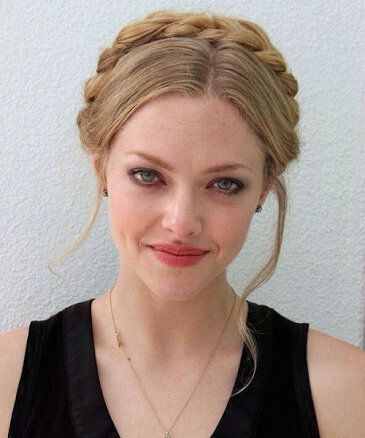
Crafting the perfect crown braid isn’t just a hairstyle, it’s an art, especially for those
with a thinning or receding hairline. Start by parting your hair into even sections and
comb through. Jay Small, a renowned celebrity stylist, recommends beginning with a
small triangle at the hairline. Take three strands and braid towards the centre,
passing around the hair area.
Remember to part and pinch at the hairline, adding more hair to make the braid larger as you go. When you finish at the nape of your back hairline, and run out of hair, secure with an elastic. Then, take the loose ends to the opposite side, and bobby pin them in place. For a fuller look, combine with the opposite braid, creating volume. To enhance the corners of the braid, use a little
powder dry shampoo for extra texture. And there you have it, in just 10 minutes!
2. Pancaked Big Braid
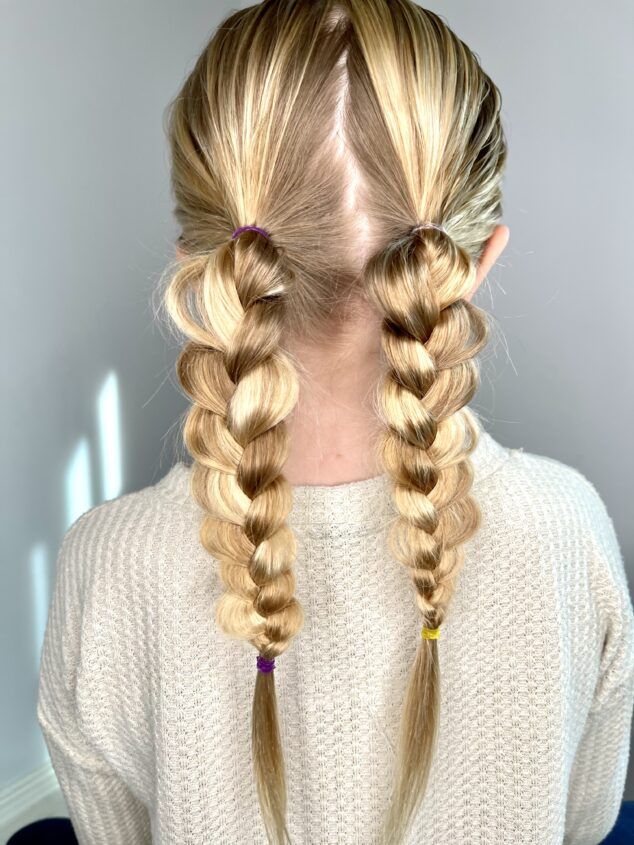
The ideal hairstyle for those seeking fullness and width, the Pancaked Big Braid
spreads across the head, creating an illusion of voluminous hair. As Renegar
explains, start with an inverted French braid, pausing after three to four inches of
braiding. Gently pancake each individual part of the braid, flattening it to add width.
Separate and flatten each part as the braid flattens out. Continue incorporating the
next section and finish with a regular braid for hair past nape of the neck, setting with
medium-hold hairspray.
3. Knotless Braids
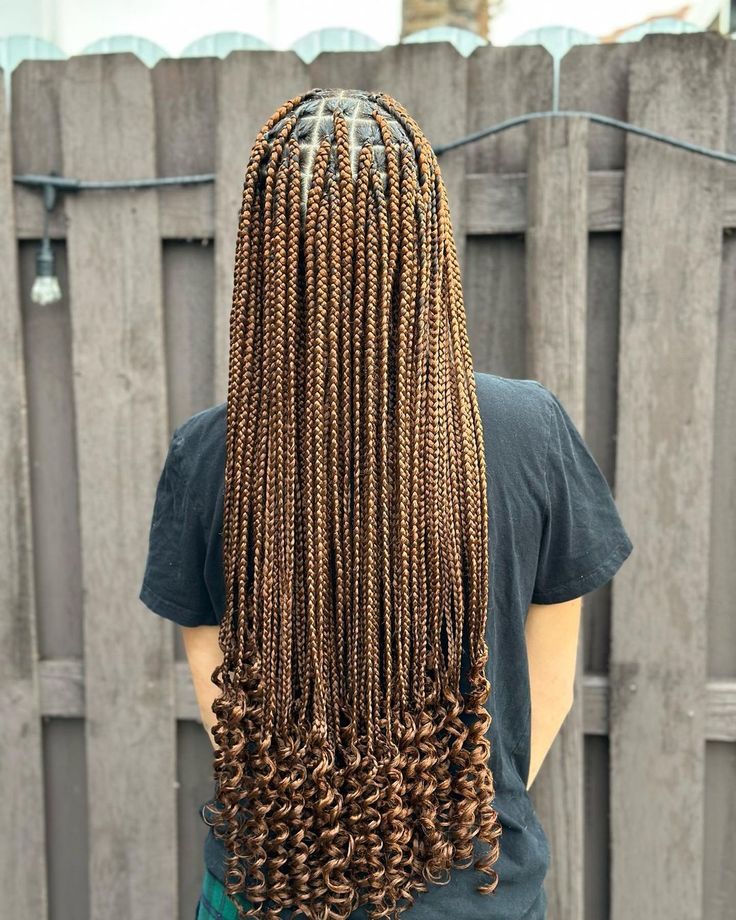
Knotless braids offer a weightless, protective hairstyle ideal for those with fine, thin,
or thinning hair. Hairstylists like Britt Dion, the Aveda artistic director for hairstyling in
North America, recommend starting with small sections to shape and protect your
hair. This technique prevents hair from being pulled at the growth area. Your natural
hair is braided, and then extensions are fed into the braid to add density and potential
length. Done by a professional, this style can last two to three months, just requiring
a refresh now and then.
4. Box Braids
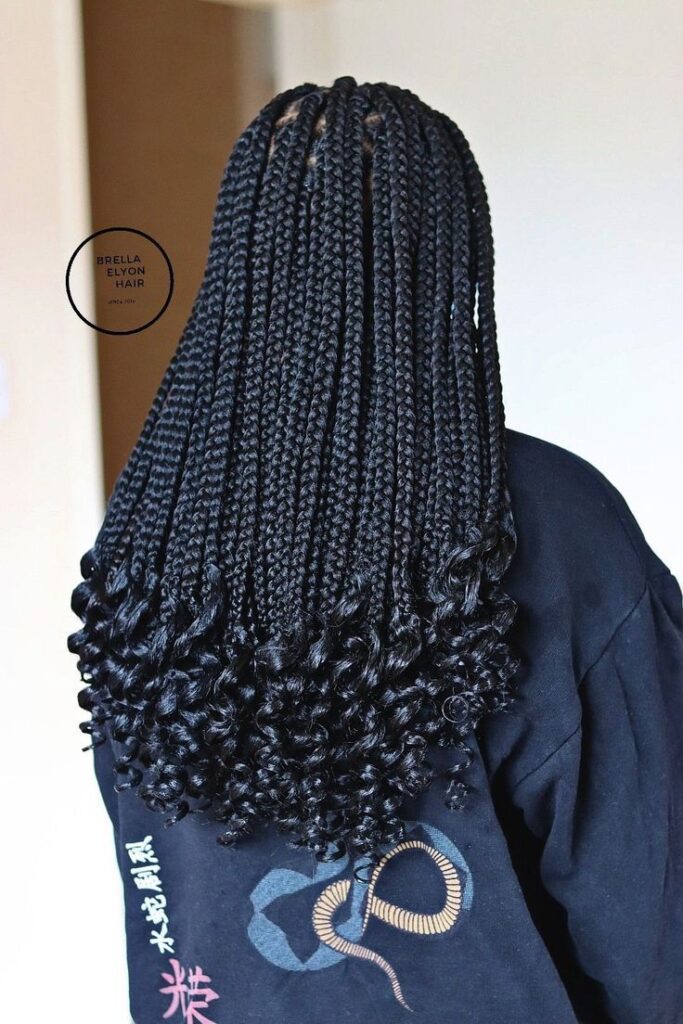
Lightweight box braids offer a stylish look without feeling heavy. Starting with knotless braids in box-shaped sections, they’re designed to last 4-6 weeks. Hair expert Dion suggests creating thicker braids from the base to distribute tension evenly, minimizing breakage and protecting hair edges. These braids not only look professional but also offer a protective style that’s perfect for up to three months. Box braids combine function and flair, making them a go-to for low-maintenance beauty.
5. Braided Bun

For fine, thin hair a braided bun is a sleek upgrade from the messy bun, with texture and style without the strain on your scalp. Start by brushing your hair with a detangling brush and applying powder dry shampoo for grip. Gather your hair into a ponytail at the crown, nape or centre and secure with a soft elastic.
Braid the ponytail, secure the end with a clear elastic and gently pull the braid for extra volume. Twist the braid into a bun and pin it in place with bobby pins. Easy and chic.
Hair expert Sarah Lin notes that braided buns are perfect for maintaining a full appearance while reducing scalp tension, making them ideal for long wear.
6. Crochet Braids

A splendid choice for those mindful of traction alopecia, crochet braids offer style
with minimal tension on the edges. Experts recommend different braid patterns to
effectively cover and protect thinning edges. Ideal for a duration of one to three
months, these braids blend elegance and hair health seamlessly.
7. Loose Ponytail or Bun

For a relaxed look, a loose ponytail or bun is the way to go. It’s key to maintain
minimal tension on the scalp and edges, ensuring a comfortable yet stylish
hairstyle.
8. Twists Hairstyles For Thin Edges
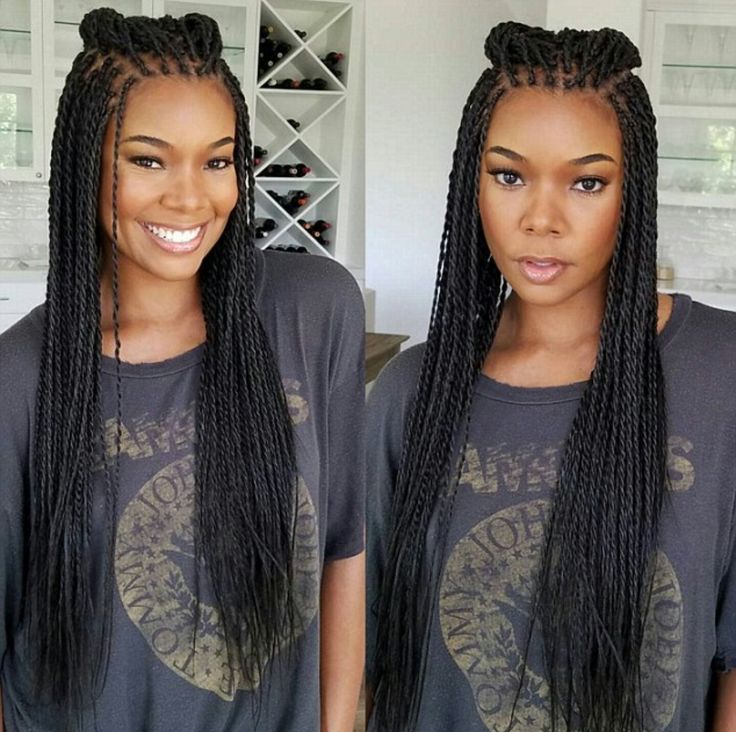
For a chic touch, twists along the edges of your hair can be pulled and styled with
ease. Simply brush and manipulate the twists to shape them to the desired length.
Let them hang gracefully to cover the forehead, ideal for those concerned about
thinning areas
9. FOUR FEED-IN BRAIDS
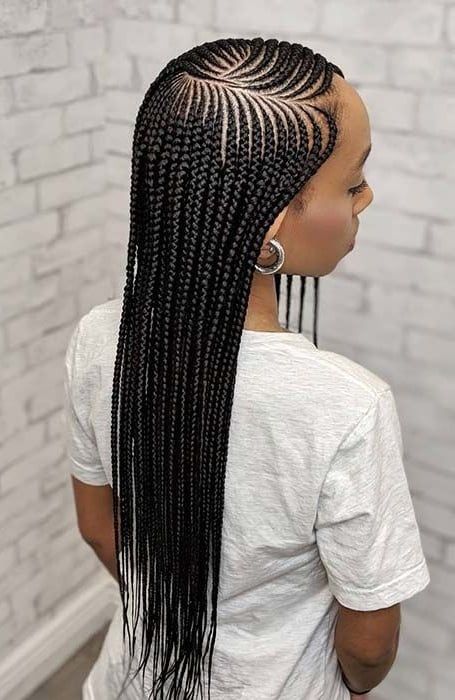
Four feed-in braids blend seamlessly with your natural hair, thanks to hair extensions.
Start by dividing your hair into four cornrows along the scalp, ensuring they are of
your desired size. The weave technique in this braid style is not heavy, designed to
protect your hair from thinning. The feed-in style makes each braid look fuller,
cleverly masking thinning edges.
10. LAYERED FEED-IN BRAIDS
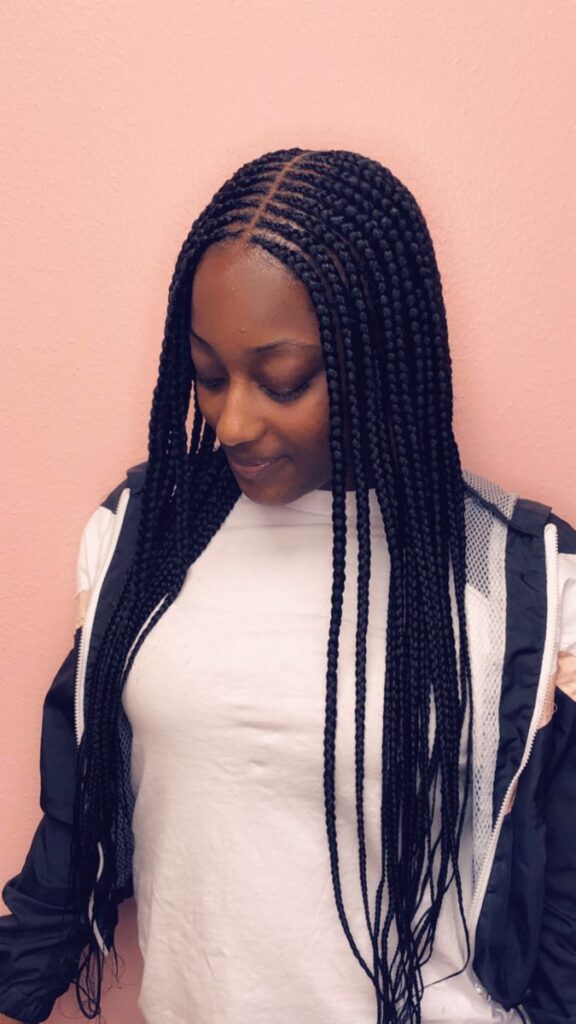
A protective hairstyle that’s as attractive as it is functional. Layered feed-in braids
blend cornrow braids into varying layers, enhancing the look while it protects your
edges and prevents thinning.
11. FEED-IN STITCH BRAIDS
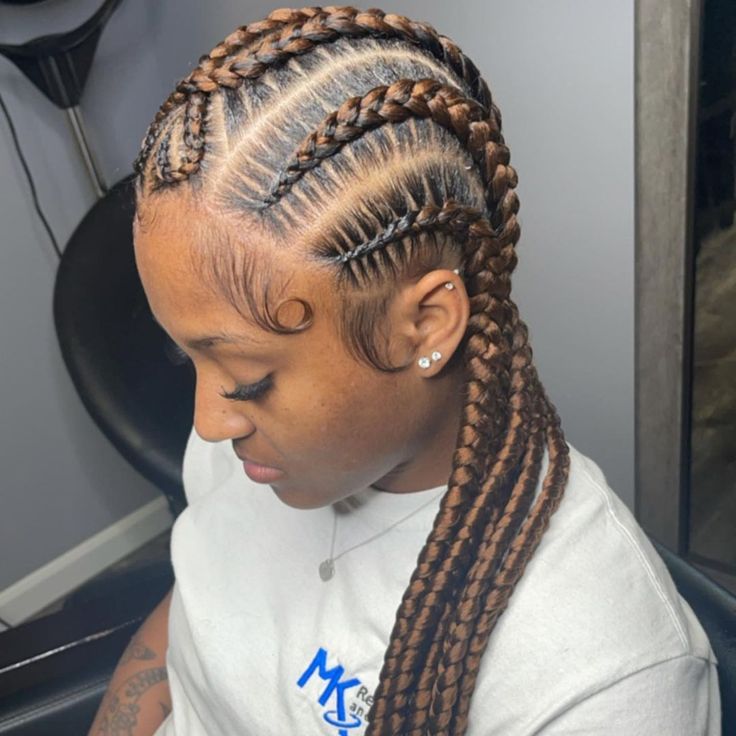
Feed-in stitch braids offer a unique and detailed twist to traditional hairstyles, perfect
for those with thin edges. This style transforms your hair into sleek stitch braid
cornrows, where each cornrow flaunts visible horizontal lines. The beauty of this
braid lies in the feed-in technique, setting it apart from average braids.
12. JUMBO FEED-IN BRAIDS
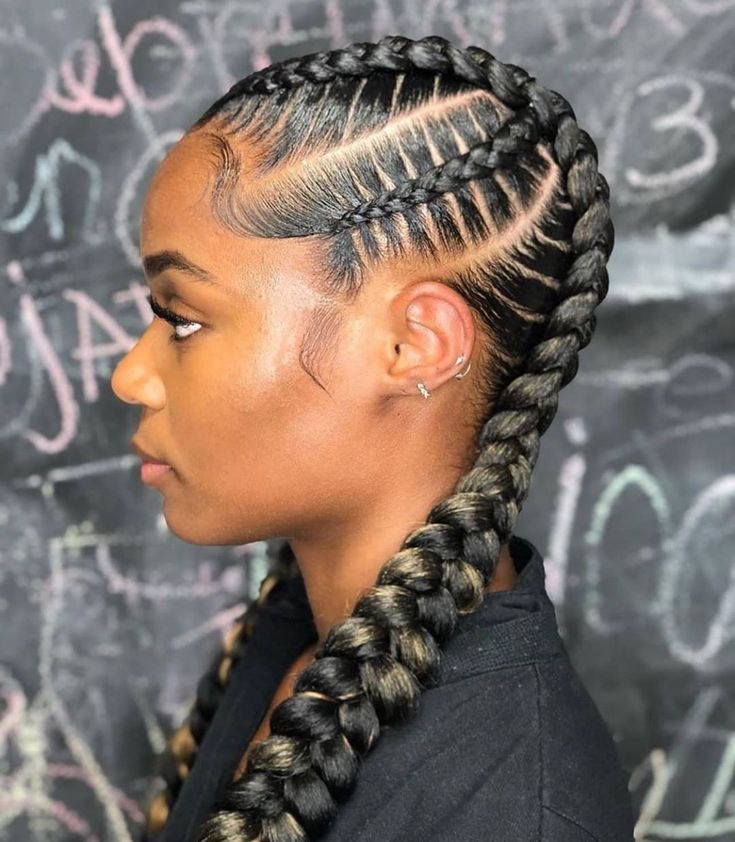
Jumbo feed-in braids combine the elegance of big cornrows with the unique feed-in
technique. This method reduces tension on the hairline, perfect for those with scant
hair. Plus, they’re surprisingly light-weight, ensuring comfort and style.
13. SMALL CORNROW BRAIDS
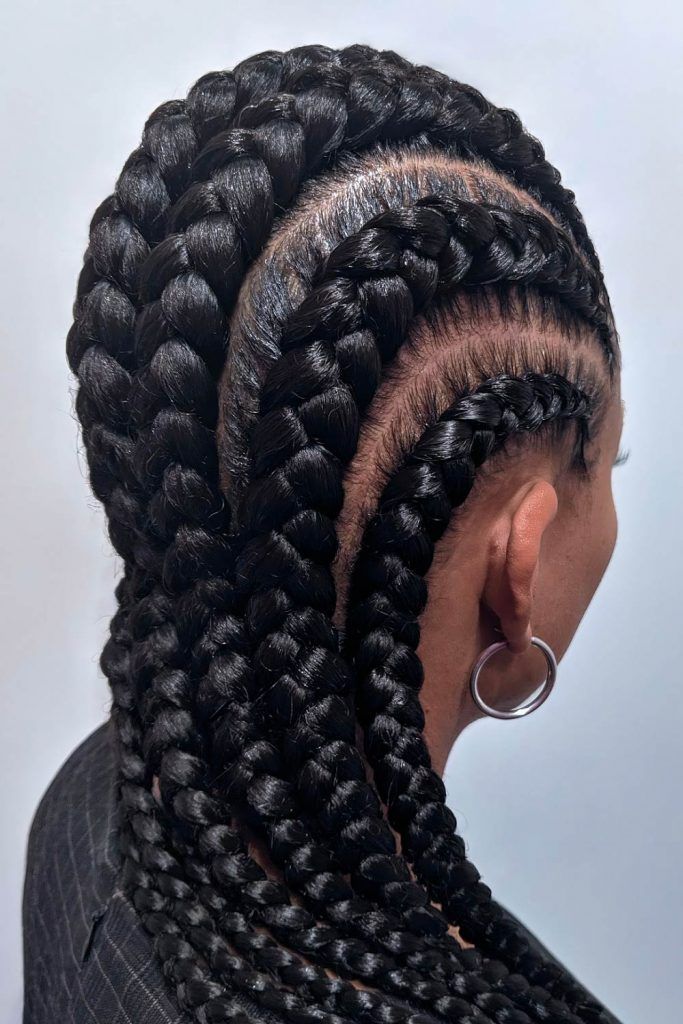
The small cornrow braid is not just a hairstyle; it’s a statement of pretty and practical
elegance. This braid style can be worn with any length of hair, making it a good
option for those with thin edges. Its quite light nature causes little to no tension on
the hairline. For an extra flair, they can be decorated with beads or curls. It’s
recommended to keep them made short to reduce the weight of the braids.
14. BRAIDED WIG
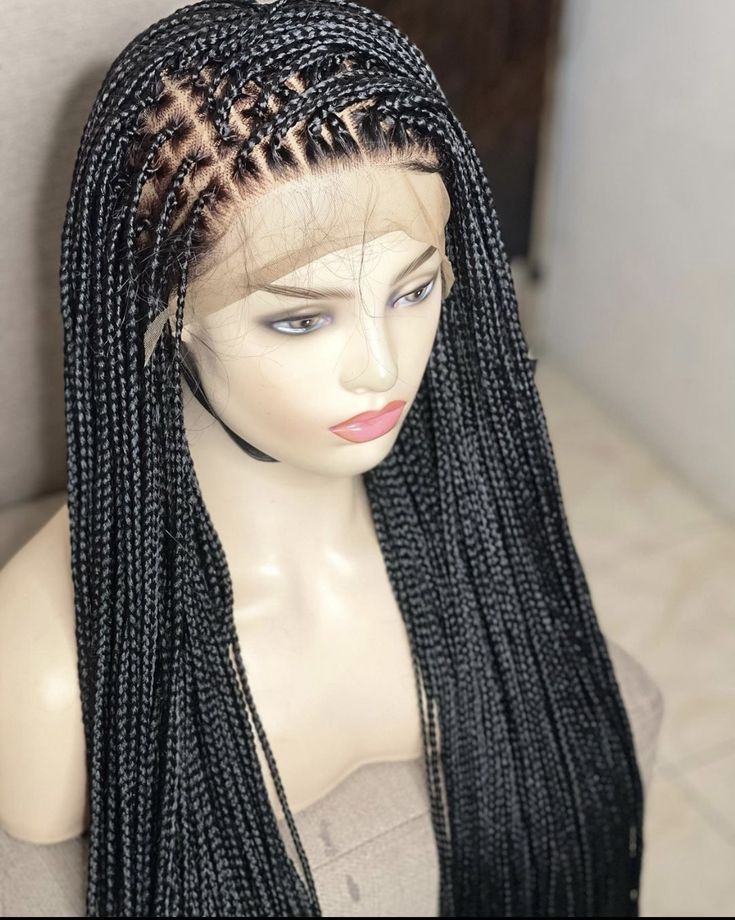
The braided wig offers a stress-free solution to protect your edges and hairline. It’s
the quickest and easiest way to look amazing without the hassle of actual braids.
Just put it on, leaving your cornrows or loose hair underneath. Wear it on top for a
stylish hair on the go, saving time and effort.
15. THIN PASSION TWISTS

For a chic and effortless vibe, thin passion twists are your go-to. These small, rope
twists can be achieved with hair extensions for a more pronounced effect. The key is
to keep them loose for that coveted distressed look, ensuring less tension on your
hair edges. This style is a stunning variation among twist hairstyles, offering an
enchanting yet easy-going elegance.
Some Common Questions About the Braids Hairstyles For Thin Edges
What are Thin Edges?
Thin edges refer to fine, wispy baby hairs along the hairline. Often seen in Black
women, with 1 in 3 experiencing this condition, thin edges can indicate traction
alopecia, a type of hair loss where the hair follicle is damaged due to pulling and
tension.
What braids are good for thin edges?
Crochet braids are a perfect option for someone suffering from traction alopecia
because they apply very minimal tension to the edges. You can try different braid
patterns to cover up any thinning edges. We recommend the duration of this style is
one to three months.
Do braids look good on thin hair?
When it comes to style choices for thin hair, braids can be a true game-changer. The
key is to choose the right techniques. While certain styles, like box braids, might
make hair look thinner, other styles are more flattering. Dutch braids and bubble
braids notably work wonders on thin hair, creating
Can thin edges grow back?
Getting thin edges back on track often requires extra care. The key is to hone in on
the cause and line up the right natural hair products. A solid regrowth strategy
includes a switch up in your styling habits.

